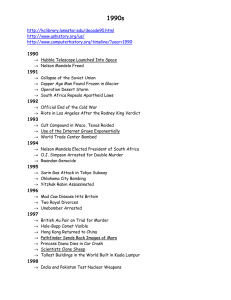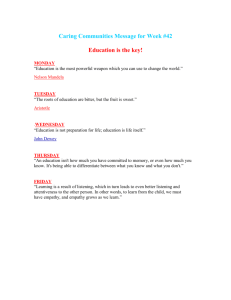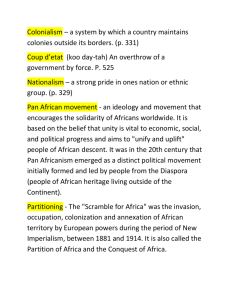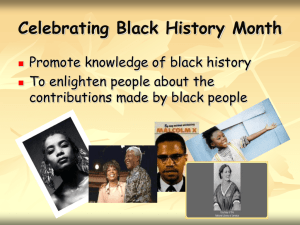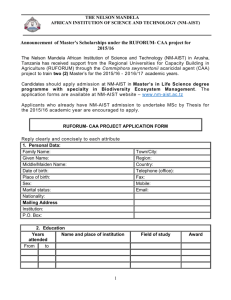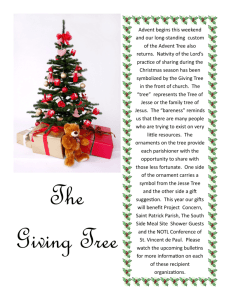Second Sunday of Advent Year A December 8, 2013
advertisement
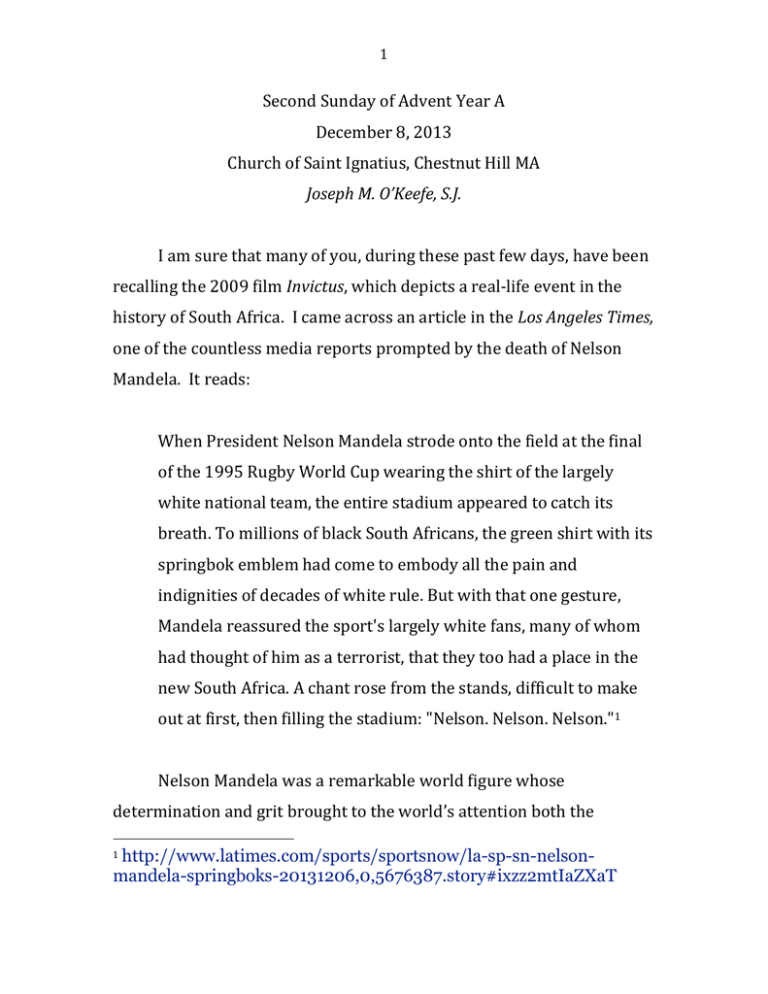
1 Second Sunday of Advent Year A December 8, 2013 Church of Saint Ignatius, Chestnut Hill MA Joseph M. O’Keefe, S.J. I am sure that many of you, during these past few days, have been recalling the 2009 film Invictus, which depicts a real-life event in the history of South Africa. I came across an article in the Los Angeles Times, one of the countless media reports prompted by the death of Nelson Mandela. It reads: When President Nelson Mandela strode onto the field at the final of the 1995 Rugby World Cup wearing the shirt of the largely white national team, the entire stadium appeared to catch its breath. To millions of black South Africans, the green shirt with its springbok emblem had come to embody all the pain and indignities of decades of white rule. But with that one gesture, Mandela reassured the sport's largely white fans, many of whom had thought of him as a terrorist, that they too had a place in the new South Africa. A chant rose from the stands, difficult to make out at first, then filling the stadium: "Nelson. Nelson. Nelson."1 Nelson Mandela was a remarkable world figure whose determination and grit brought to the world’s attention both the http://www.latimes.com/sports/sportsnow/la-sp-sn-nelsonmandela-springboks-20131206,0,5676387.story#ixzz2mtIaZXaT 1 2 inhumanity of apartheid, and a vision of how the world could be. Isaiah also had a vision, a new ecology of the reign of the Messiah, where there shall be no harm or ruin. And in that new ecology the wolf shall be a guest of the lamb, and the leopard shall lie down with the kid; the calf and the young lion shall browse together, with a little child to guide them. The cow and the bear shall be neighbors, together their young shall rest; the lion shall eat hay like the ox. The baby shall play by the cobra’s den, and the child lay his hand on the adder’s lair. This is but one example of the poetry of the prophets during these days of Advent, poetry that paints a vivid picture of the world as it could be, a picture of the would as it should be. The poetry of the prophets communicates God’s dream for humanity. But before we get carried away by Isaiah’s utopian menagerie, let’s be mindful that the things described here simply are not so: Wolves still devour lambs, leopards still pounce on their prey, bears and cows do not eat side-by-side, lions are not vegans, venomous snakes still strike, and innocent children still need to be sheltered and protected from predators. And Mandela’s dream? The article from the Los Angeles Times continues: Watching those euphoric scenes in the film Invictus, when South Africans of all races poured into the streets to celebrate the Springbok national rugby team's eventual triumph, it would be easy to believe that this was "the game that made a nation." Yet fifteen years later, the country remains in many ways racially divided. Impoverished blacks continue to live packed into third- 3 world townships on the edge of modern cities, where the best neighborhoods are mostly white. Many of them now complain that too much time has been spent allaying white fears and too little reversing the injustices of white rule. And sadly, a 2012 census in South Africa revealed that the median income for whites was over six times that of blacks. As we feast on the poetry of the prophets, are we carried away by a fanciful vision of a universe that has never existed? Are we duped by this vision of a new world, a world of justice and integrity, a world of reconciliation and harmony, a world where hatred is quenched by mercy, where vengeance gives way to forgiveness, and where nations seek the way of peace together? How do we square this vision with the harsh reality of the world as it is? As one trained in social science methodologies as well as theology, I can posit that original sin is the one theological concept for which there is ample empirical evidence. My friends, we have a long way to go to make God’s dream a reality. And so, as we continue on our Advent journey, we hear John the Baptist preaching in the desert of Judea and saying, “Repent, for the kingdom of heaven is at hand!” Advent is a time of repentance, when we acknowledge our sinfulness as we prepare once again to celebrate the coming of the Messiah. We acknowledge ways in which each of us, by what we do and by what we fail to do, inhibit the coming of the kingdom of heaven. Advent is also a time of hope when, rejecting cynicism, we do not let the harsh realities of the present overshadow the possibilities for the future, when we attend to the vision of the ancient sages like Isaiah or the contemporary sages like Mandela. And Advent is a time of 4 prayer, when we take time to turn to God and echo the words of the quintessential Advent hymn, “O come, desire of nations, bind in one the hearts of all humankind; Bid Thou our sad divisions cease, and be Thyself our King of Peace.”

